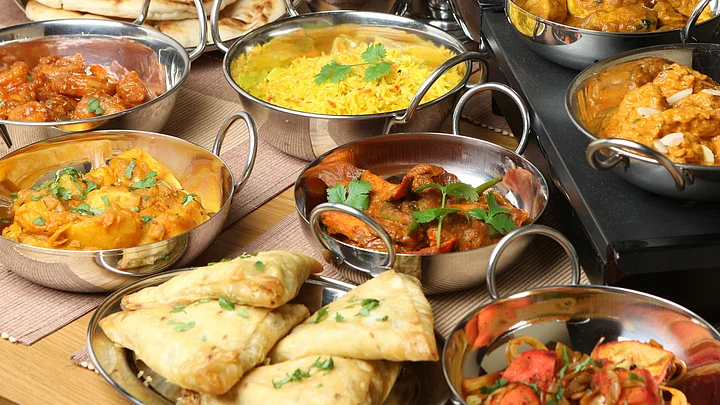Years ago, my grandfather gave me a tip on eating. Stand while drinking milk, sit while you drink water. His logic was that standing helps milk course through the body and gives nutrition to every limb. But zero-nutrition water is better had sitting down because it would go straight to the stomach and nowhere else.
When it comes to food and drink, the idiosyncrasies of Hindus are endless. A few of my orthodox aunts eat rice cooked only by themselves, not even by their own daughters, though they harbour no reservations about eating dal, chapattis or subzi made by other hands. Reason? Some obscure Hindu traditions attach a ritual pollution to rice that doesn’t attach to other foods.
Hindus are perhaps the only religious group in the world who attribute qualities to food. Orthodox Hindus believe that onions and garlic excite anger and lust. They think sweet foods sweeten a person’s temperament while sour foods sour it.
Sweet N Sour
Morarji Desai believed this too. When he was Prime Minister, his personal staff ensured that the fruits he was served were sweet, not sour. The supposed qualities of foods is the reason why some Hindus drink milk only from a cow and not from a buffalo. The reason is that a cow looks more gentle than a buffalo. So cow milk is supposed to enhance gentleness in the person who drinks it.
One factor has reinforced these Hindu food beliefs – the fact that India contains 95 per cent of the world’s Hindus. If Hindus were widespread like Muslims or Christians, then Hindu populations outside India would have weakened Hindu food beliefs here. Instead, the concentration of Hindus in India have strengthened existing food beliefs.
Irrational Beliefs
The origin of these beliefs cannot be established, but no doubt they are really irrational. For instance, I can understand the origin of a belief that one shouldn’t cut nails at night. Before nail-cutters became common 30 years ago, people would use a razor blade to cut their nails, which was better done in daylight.
But why can’t a person drink milk after eating meat? I was told this by my parents who didn’t know the reason either. They were merely passing on a belief that had come down from their parents.
A similar bit of inherited ‘wisdom’ prompts pregnant women in north India to avoid a dark, leafy vegetable like spinach (palak) believing it causes the baby to become dark-skinned. A misconception like this causes harm. Spinach is one of the world’s most nutrient-dense vegetables whose ingestion would be good for the woman and her baby. Alas, she foregoes its health benefits.
Watered Down
Some people don’t drink water with a meal. They think water dilutes nutrients in the food. The reality is the opposite. Water aids digestion. Some people think eating citrus fruits like oranges in winter causes cough and cold. Wrong. The Vitamin C in citrus fruits fights cough and cold.
What is amazing about food beliefs is how unshakeable they become once they catch hold. In Mumbai, for instance, industrial workers like to drink a soda after a meal believing that the burp it induces aids digestion. In reality, a soda only causes flatulence because most of its gas, carbon dioxide, remains inside the stomach. Apart from the fact that the worker who buys a soda would be better off buying a healthy banana for Rs 15.
One Man’s Meat is Another Man’s Poison
The oddest food idiosyncrasies, however, exist among vegetarian Hindus struggling to become non-vegetarian but unable to complete the metamorphosis. Deep in the Hindu psyche lurks a belief that meat-eating is cruel and sinful. Which is why vegetarian Hindus go through agony when they move towards meat-eating.
Some ‘eggitarian’ Hindus, for instance, will eat a piece of cake or pastry which has egg in it, but will recoil from an egg which is recognisable, boiled or fried. I know Hindus who take gravy from a meat dish, but no meat. More daring ones will nibble a kebab in which spices disguise the taste of meat. Many north Indian Hindus will eat mutton but not chicken, others eat mutton and chicken, but not pork, because they consider pork unclean.
In some Hindu homes, the wife won’t cook meat but will permit the husband to bring cooked meat from outside. Many Hindu women give up meat when they marry and many Hindus give it up when they get old.
But the funniest thing I’ve heard is some vegetarian Hindus avoiding gaajar (carrot) because the word’s first syllable gaa is also the first syllable for gaay (cow). I cannot vouch for its veracity.
(Arvind Kala is a freelance journalist)
